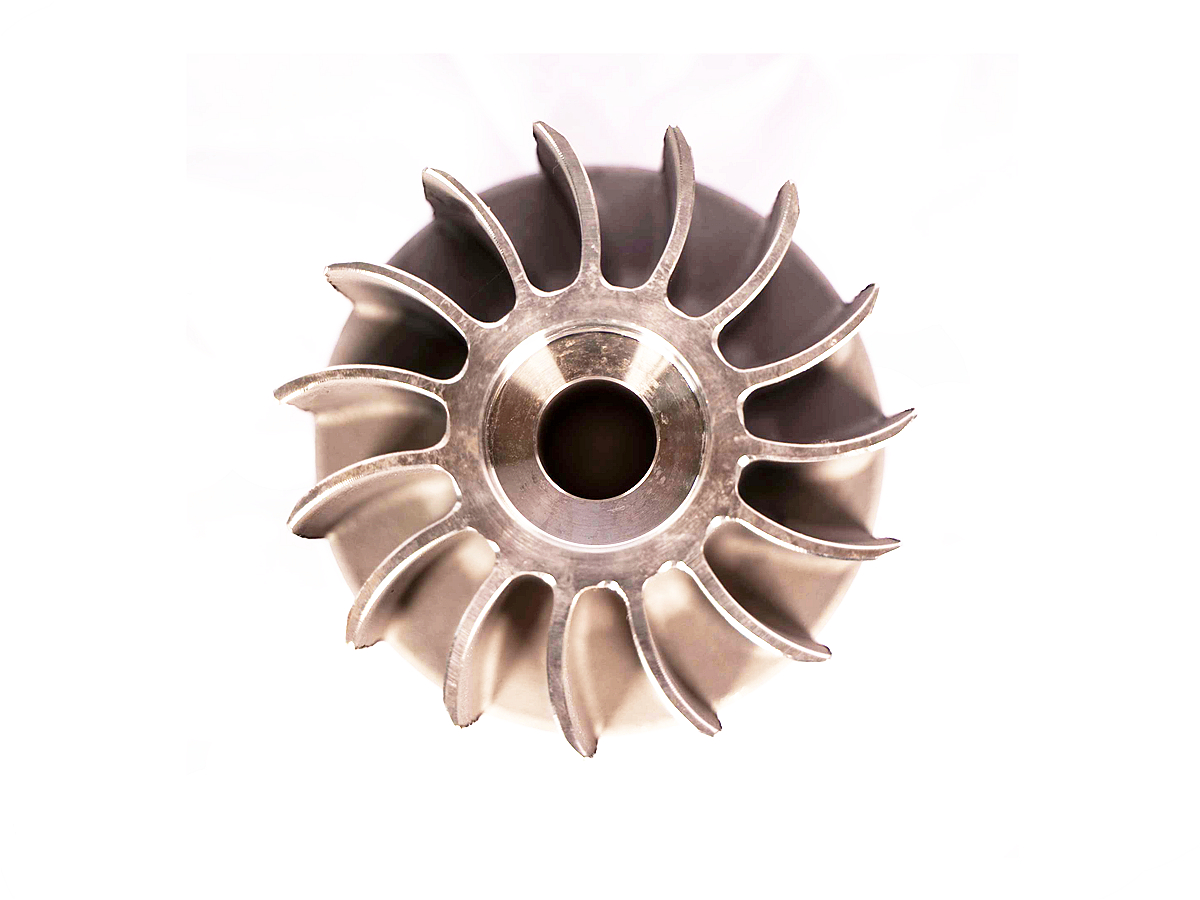High-Strength CNC Machined Components for Compressors and Industrial Machinery
Introduction to CNC Machining for Compressor and Industrial Machinery Components
Compressors and heavy-duty industrial machinery require high-strength components capable of enduring intense mechanical stress and harsh operational environments. CNC machining provides unmatched precision (±0.005 mm tolerances) and surface finishes (Ra ≤0.8 µm), essential for manufacturing durable components such as compressor rotors, precision shafts, connecting rods, and valve assemblies. These critical parts support reliable operation in sectors like industrial equipment, power generation, and oil and gas.
By employing advanced CNC machining services, manufacturers deliver consistent quality, improve mechanical reliability, and maximize equipment longevity even under extreme pressures (up to 1500 bar) and temperatures (up to 700°C).
Material Comparison for Compressor and Machinery Components
Material Performance Comparison
Material | Tensile Strength (MPa) | Wear Resistance | Corrosion Resistance | Typical Applications | Advantage |
|---|---|---|---|---|---|
1080-1230 | Excellent | Good | Rotors, compressor shafts | High strength, excellent fatigue life | |
1100-1310 | Excellent | Excellent | Valve bodies, precision fittings | Exceptional strength, corrosion resistance | |
1240-1400 | Outstanding | Exceptional | High-temperature compressor parts | Superior heat resistance, mechanical strength | |
900-1100 | Very Good | Excellent | Lightweight rotors, compressor blades | Excellent strength-to-weight ratio, corrosion resistance |
Material Selection Strategy for High-Strength Components
Selecting optimal materials for CNC machined compressor and machinery components involves analyzing mechanical strength, corrosion resistance, operational temperatures, and specific application demands:
4340 Alloy Steel is suited for heavy-duty shafts and rotors, providing robust tensile strength (up to 1230 MPa), fatigue resistance, and durability under dynamic loads.
Stainless Steel SUS630 (17-4PH) is ideal for precision valves and fittings exposed to aggressive chemical environments, combining high strength (up to 1310 MPa) with superior corrosion resistance.
Inconel 718 offers outstanding mechanical performance (up to 1400 MPa) and thermal stability up to 700°C, perfect for components operating in extreme heat conditions like compressor turbine sections.
Titanium Ti-6Al-4V provides high strength (1100 MPa), excellent corrosion resistance, and a superior strength-to-weight ratio, ideal for lightweight, high-performance compressor blades and rotors.
CNC Machining Process Analysis for Industrial Machinery Components
CNC Machining Processes Performance Comparison
CNC Machining Technology | Dimensional Accuracy (mm) | Surface Roughness (Ra µm) | Typical Applications | Key Advantages |
|---|---|---|---|---|
±0.005-0.01 | 0.4-1.0 | Compressor casings, gear housings | Complex geometry, precise tolerances | |
±0.005-0.01 | 0.6-1.2 | Rotors, shafts, cylindrical parts | Efficient high-volume production | |
±0.002-0.005 | 0.05-0.2 | Precision bearings, sealing surfaces | Ultra-high precision, exceptional finishes | |
±0.003-0.008 | 0.2-0.8 | Complex compressor blades, intricate assemblies | Enhanced detail, superior accuracy |
CNC Machining Process Selection Strategy for High-Strength Parts
Choosing the right CNC machining process ensures optimal component precision, surface quality, and performance longevity:
CNC Milling is effective for complex geometries such as compressor casings, gear housings, and intricate mechanical parts, delivering precision tolerances down to ±0.005 mm.
CNC Turning efficiently produces cylindrical components like precision rotors, shafts, and compressor spindles, providing dimensional consistency and high production efficiency.
CNC Grinding achieves ultra-high precision (±0.002-0.005 mm) and superior surface finishes (Ra ≤0.2 µm), essential for critical bearings, sealing surfaces, and high-stress contact areas.
Multi-Axis CNC Machining is essential for producing intricate, detailed parts like compressor blades and turbine components, ensuring accuracy down to ±0.003 mm and superior surface integrity.
Surface Treatment Solutions for CNC Machined Compressor Components
Surface Treatment Performance Comparison
Treatment Method | Wear Resistance | Corrosion Resistance | Max Operating Temp (°C) | Typical Applications | Key Features |
|---|---|---|---|---|---|
Excellent (HV 1100) | Excellent (~1200 hrs ASTM B117) | 550 | Rotors, shafts, gears | High surface hardness, increased fatigue resistance | |
Outstanding | Exceptional (~1500 hrs ASTM B117) | 1000 | Compressor blades, turbine parts | Superior thermal protection, reduced thermal stress | |
Excellent | Exceptional (~1000 hrs ASTM B117) | 400 | Valve components, precision fittings | Uniform thickness, corrosion resistance | |
Moderate | Excellent (~800 hrs ASTM B117) | 250 | Stainless steel valves, connectors | Enhanced corrosion resistance, surface protection |
Surface Treatment Selection Strategy for Compressor and Machinery Parts
Appropriate surface treatments maximize performance, extend service life, and provide critical protection:
Nitriding enhances surface hardness (HV 1100) and fatigue life, making it ideal for heavily loaded rotors, gears, and shafts subject to cyclic stress.
Thermal Barrier Coatings provide exceptional thermal protection up to 1000°C, ideal for compressor blades and turbine components exposed to high-temperature operation.
Electroless Nickel Plating ensures uniform corrosion protection, suitable for precision valve components and fittings operating in harsh environments.
Passivation effectively enhances corrosion resistance for stainless steel parts, ideal for maintaining cleanliness and preventing corrosion in industrial valves and connectors.
Typical Prototyping Method
CNC Machining Prototyping: Produces highly accurate prototypes with tolerances as tight as ±0.005 mm and Ra ≤0.8 µm surface finishes, enabling rigorous functional testing and mechanical validation.
Powder Bed Fusion: Allows fabrication of robust metal prototypes with complex geometries, typically achieving ±0.1 mm tolerances, ideal for assessing component performance in realistic operating conditions.
Material Jetting: Offers detailed, high-resolution prototypes (16-32 µm layers), suitable for validating intricate geometries and mechanical interfaces before final production.
Quality Control Standards for CNC Machined Compressor Components
Dimensional inspections using Coordinate Measuring Machines (CMM).
Surface roughness evaluations with precision profilometers.
Non-destructive testing methods (ultrasonic, radiographic, magnetic particle) for structural integrity verification.
Mechanical testing (tensile, fatigue, hardness) conforming to ASTM and ISO standards.
Corrosion resistance testing according to ASTM B117.
Complete documentation and ISO 9001-certified traceability.
Industry Applications of High-Strength CNC Machined Components
Compressor rotors and turbine blades.
Precision shafts and high-load gears.
Industrial valves and high-pressure fittings.
Components for oil and gas, power generation, and heavy machinery.
Related FAQs:
Why is CNC machining essential for compressor component reliability?
What materials provide the highest strength for industrial machinery components?
Which CNC processes ensure maximum precision in compressor parts?
How do surface treatments improve compressor component durability?
What quality controls are necessary for high-strength machined parts?

